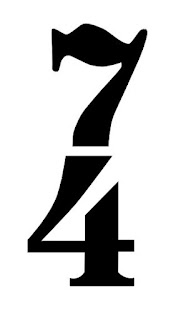Some strange music
Draws me in
I’ve just finished watching Daisy Jones & the Six, a new Amazon television series whose name refers to the fictional seventies rock band that is the subject of the show.
 |
I don’t think the series is very good. It’s biggest failing is probably its predictability – the plot is quite clichéd. (A friend of mine objected in particular to the ending, and the ending is a little too pat. Since I’m not sure I could have come up with a better one, I’m going to give the writers a break on the ending.)
But I had to watch it. After all, how could 2 or 3 lines resist a series about sex, drugs, and rock ’n’ roll, baby?
* * * * *
Daisy Jones & the Six focuses on the relationship between Daisy and Billy – the band’s frontwoman and frontman, respectively.
Both Daisy (who is portrayed by the oldest granddaughter of Elvis Presley, Riley Keough) and Billy are very talented singer-songwriters. But it’s when their producer forces them to write songs together that things really take off for their band.
The songs they wrote individually were good, but the songs they write together are much better. And when they perform together on stage, their chemistry is obvious and irresistible to audiences.
But while the Daisy-Billy whole is exponentially greater than the sum of its parts, their personal relationship is troubled – to say the least.
* * * * *
As Elie Wiesel famously wrote, “The opposite of love is not hate – it’s indifference.”
Daisy and Billy are never indifferent to one another. To the contrary: they have a love-hate relationship – or (perhaps more accurately) a love-HATE! relationship – almost from the moment they first meet. (At one point, Daisy tells a TV interviewer, “We had to work together. We didn’t have to like each other. And we didn’t.”)
But don’t overlook the love part of the equation. The love between Daisy and Billy is often obscured by the hate, but it is always there.
 |
| Riley Keough as Daisy Jones |
Daisy and Billy love each other because each understands the other more completely than any other person in the world. That’s because Daisy and Billy are essentially the same person – they are mirror images of one another.
For one thing, both had serious issues with their parents – Billy’s father left the family when Billy was young, while Daisy’s mother made it clear that if she had had her druthers, Daisy would have never been born. And both abuse drugs and alcohol rather spectacularly.
The word Billy uses over and over to describe both himself and Daisy is “broken.”
* * * * *
There were about two dozen original songs written for the series.
According to one newspaper article, “While the television series has had mixed reviews from critics, most agree that the songs sound like real hit records.”
If that’s accurate, then most critics need to have their ears checked.
I think the songs that Daisy Jones & the Six perform in the series are universally meh. I can’t imagine that any of them would have been hits back in the seventies – much less huge hits.
Nonetheless, the Aurora album – which consists of the songs from the series – immediately went to #1 on iTunes when it was released a few months ago. Such is the power of a heavily promoted TV series.
*. * * * *
I am not a big Patti Smith fan, but I can’t get enough of her 1979 song, “Dancing Barefoot,” which is played during the Daisy Jones & the Six opening credits sequence.
“We talked about wanting to kick off the series with something that represents the show but is outside the show,” showrunner Scott Neustadter said in an interview. “That was the song that I thought would work the best. I came up with it really early and then spent the next six or seven months trying to beat it. I could never beat it. It's too perfect.”
Works for me!
Click here to listen to “Dancing Barefoot.”
Click here to buy the song from Amazon.













